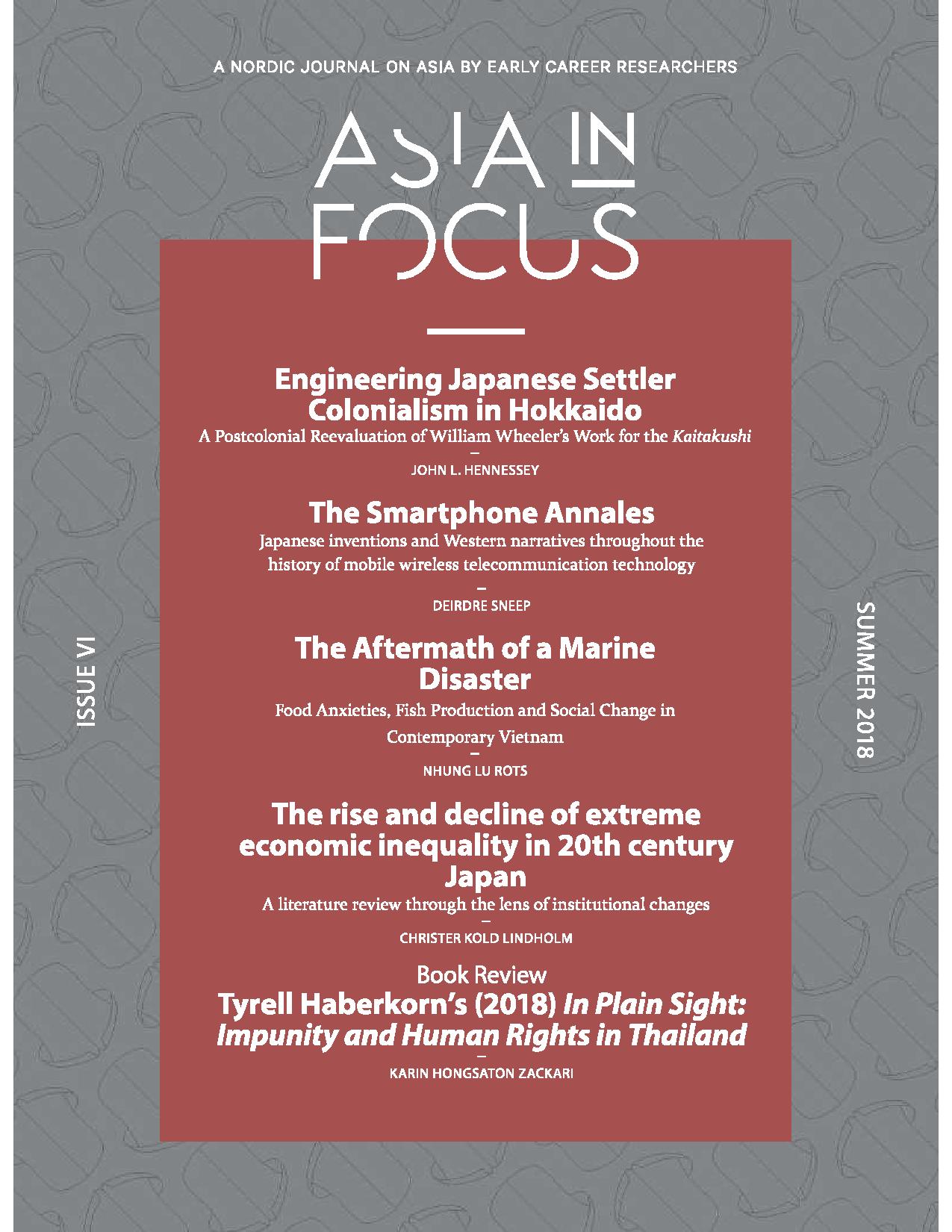The Aftermath of a Marine Disaster
Food Anxieties, Fish Production and Social Change in Contemporary Vietnam
Keywords:
food safety, pangasius fish, transition theory, environmental disaster, Đổi MớiAbstract
In April 2016, a marine disaster seriously disrupted fisheries and aquaculture facilities in and around Hà Tĩnh Province, Vietnam. The environmental disaster has strengthened Vietnamese distrust for domestic products, especially seafood. Food anxieties have driven many Vietnamese consumers to the streets to demonstrate for changes in the food system and demand environmental justice. In recent decades, seafood, in particular fish, has played a significant role in Vietnam’s economic growth and has become an important export commodity. Pangasius fish from the Mekong Delta, for instance, is not only one of Vietnam’s key export products, but also a key tool for poverty reduction. However, global and domestic anxieties over food safety and environmental degradation constitute a threat to the industry. At the same time, these anxieties provide incentives for changing to sustainable farming practices. Applying transition theory in food practices, this article examines how current food anxieties, global as well as domestic, affect sustainable pangasius production. It also addresses the question of whether new food practices can contribute to economic and social change in Vietnam.
Published
How to Cite
Issue
Section
License
Copyright of the authors and NIAS - Nordic Institute of Asian Studies. All rights reserved. No part of this publication may be reproduced without the written permission from the authors.


